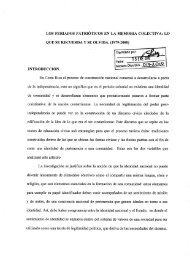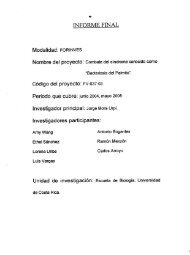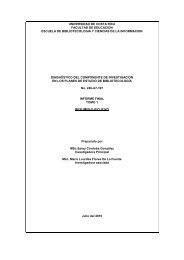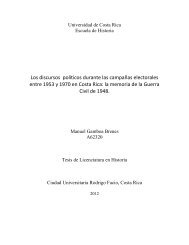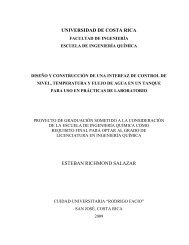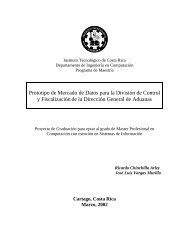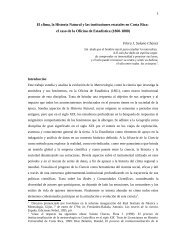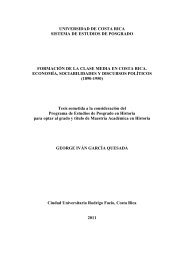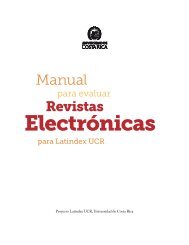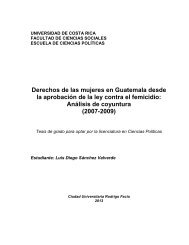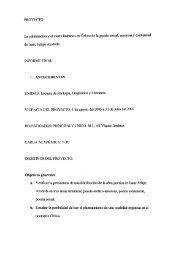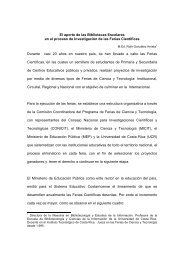A Raisin in the Sun
A Raisin in the Sun
A Raisin in the Sun
You also want an ePaper? Increase the reach of your titles
YUMPU automatically turns print PDFs into web optimized ePapers that Google loves.
comparison to men. In o<strong>the</strong>r words, power is found more <strong>in</strong> men than it is <strong>in</strong> women, which emphasizes<br />
<strong>the</strong>ir notion of power as a social resource unevenly distributed <strong>in</strong> society. For example, Susan Moller<br />
Ok<strong>in</strong>, <strong>in</strong> her book Justice, Gender and <strong>the</strong> Family, claims that power is unequally distributed between<br />
husbands and wives:<br />
when we look seriously at <strong>the</strong> distribution between husbands and wives of such critical social goods as work (paid<br />
and unpaid), power, prestige, self-esteem, opportunities for self-development, and both physical and economic security,<br />
we f<strong>in</strong>d socially constructed <strong>in</strong>equalities between <strong>the</strong>m, right down <strong>the</strong> list (Ok<strong>in</strong>, 1989: 136).<br />
Aga<strong>in</strong>, this position differs from <strong>the</strong> view of power as male dom<strong>in</strong>ation <strong>in</strong> <strong>the</strong> sense that it ascribes a<br />
degree of power to women while <strong>the</strong> construct of power as male dom<strong>in</strong>ation holds women as powerless<br />
be<strong>in</strong>gs.<br />
Although both <strong>the</strong> position of power as male dom<strong>in</strong>ation and that of power as an unevenly<br />
distributed social good are legitimate <strong>in</strong> general terms, <strong>the</strong>y also imply a simplification of power as an<br />
unvary<strong>in</strong>g, perennial oppressive state only changed through revolution or by a fair redistribution. This<br />
notion is common <strong>in</strong> most fem<strong>in</strong>ist <strong>in</strong>terpretations of literary texts, for fem<strong>in</strong>ist critics tend to emphasize<br />
<strong>the</strong> oppression to which patriarchy subjects women <strong>in</strong> literary works or how patriarchy causes power to be<br />
unequally distributed <strong>in</strong> society and call for a change. However, <strong>the</strong>se common fem<strong>in</strong>ist notions of power<br />
can be fur<strong>the</strong>r analyzed to reveal that <strong>the</strong>se relations of power and gender usually overlook o<strong>the</strong>r aspects of<br />
power structures. For example, <strong>in</strong> fem<strong>in</strong>ist read<strong>in</strong>gs of literary texts, power relations and differences among<br />
women as well as <strong>the</strong> dynamics <strong>in</strong> <strong>the</strong>se structures are seldom disclosed or <strong>the</strong>y are usually written off as<br />
patriarchy by-products. A Derridean perspective of power and its fem<strong>in</strong>ist analysis reveals a subtle, but<br />
important feature of power structures: power itself does not represent a constant, monolithic structure and<br />
traditional views of power need to take such dynamism <strong>in</strong>to consideration.<br />
A DERRIDEAN PERSPECTIVE OF FEMINISM'S VIEWS ON POWER<br />
While at a first glance <strong>the</strong> fem<strong>in</strong>ist positions of power as male dom<strong>in</strong>ation or as an immaterial<br />
resource that is present with less frequency <strong>in</strong> women seem valid and fair, <strong>the</strong>y actually rest upon <strong>the</strong><br />
b<strong>in</strong>ary opposition of presence versus absence that Derrida calls logocentrism and to which he openly<br />
objects:<br />
The system of language associated with phonetic-alphabetic writ<strong>in</strong>g is that with<strong>in</strong> which logocentric metaphysics,<br />
determ<strong>in</strong><strong>in</strong>g <strong>the</strong> sense of be<strong>in</strong>g as presence, has been produced. This logocentrism, this epoch of <strong>the</strong> full speech, has always<br />
Saravia Vargas, José Roberto. "From Power-over to Power-to: Power Relations of Women <strong>in</strong> Hansberry's A <strong>Rais<strong>in</strong></strong> <strong>in</strong> <strong>the</strong> <strong>Sun</strong>"<br />
Impossibilia Nº4, Págs. 34-51 (Octubre 2012) Artículo: Recibido 08/02/2012 - Aceptado 20/03/2012 - Publicado 30/10/2012<br />
37



